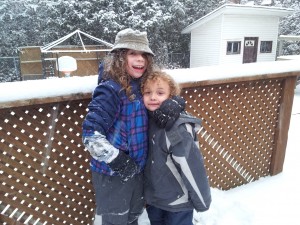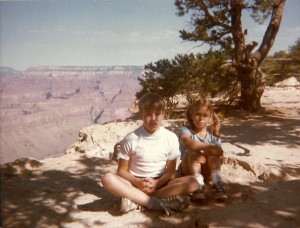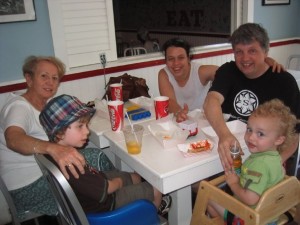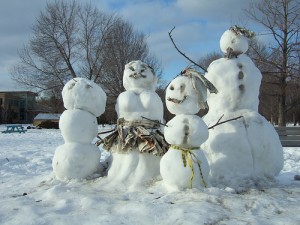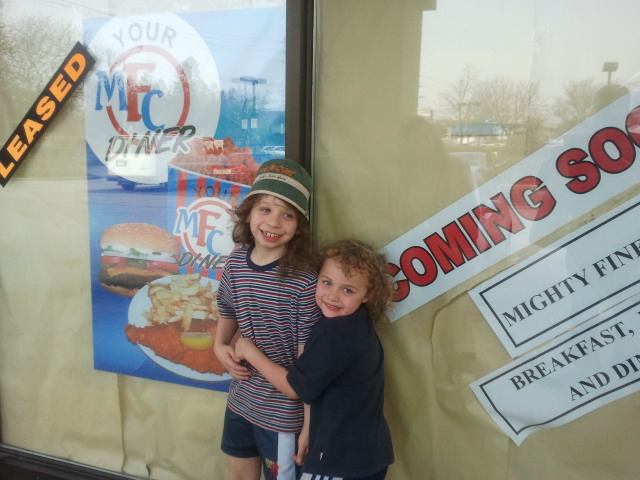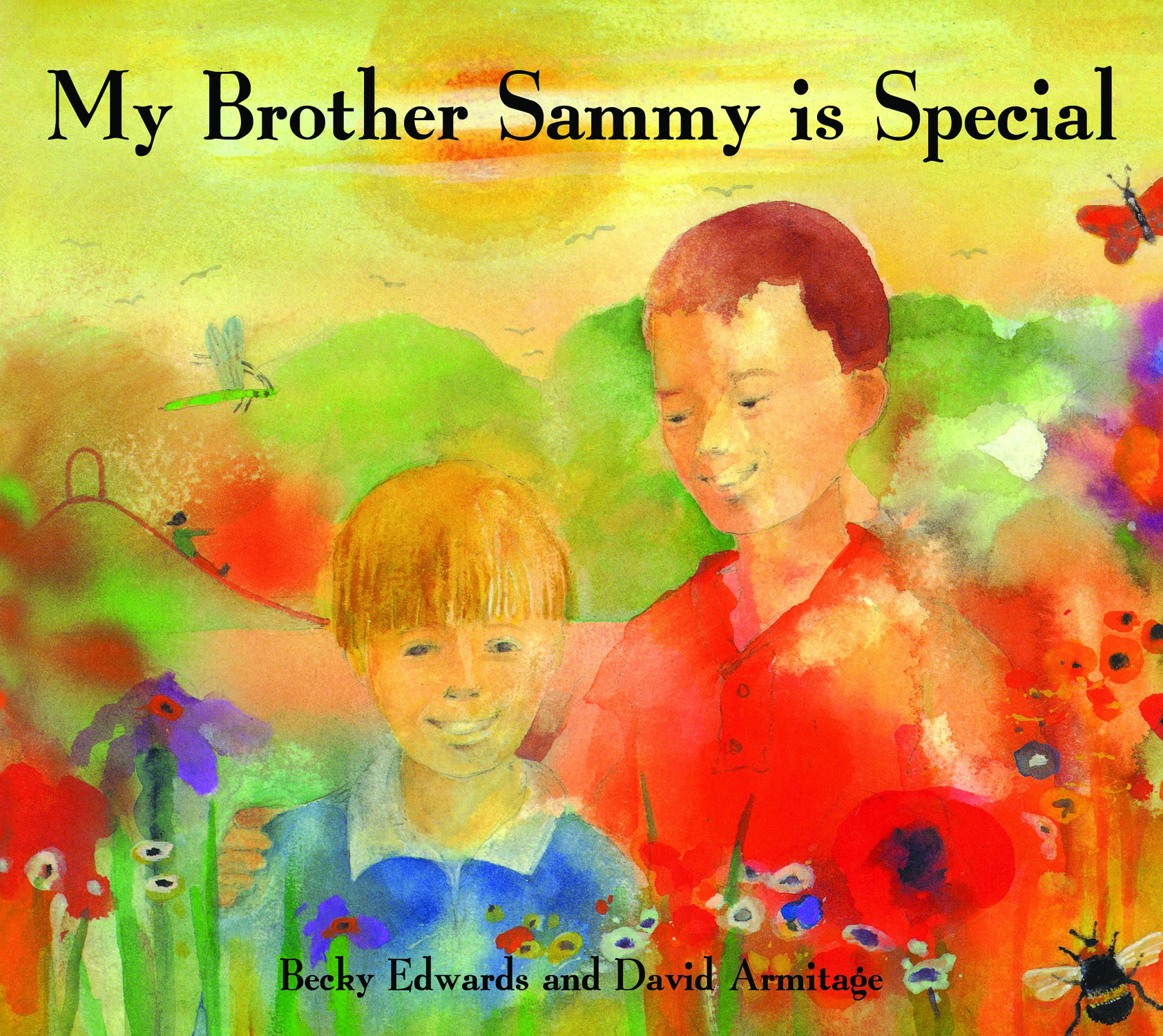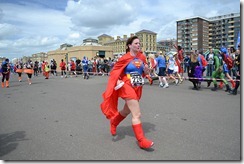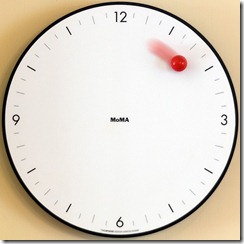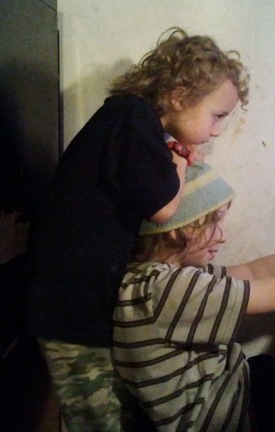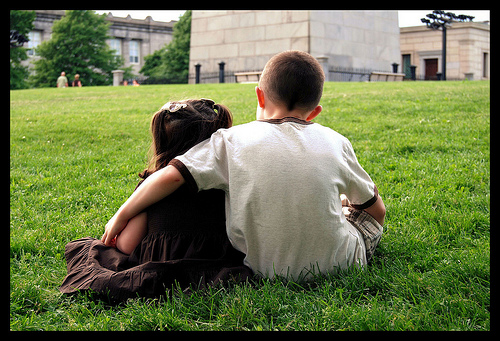Last week, George lost his footing while trying to climb a tree, and he had a nasty fall. There was no lasting damage, but there were some scary-looking cuts and scrapes. That night, George had a hard time sleeping, probably because he was aching all over and couldn’t find a comfortable position to lie in.
We decided to keep him home from school the next day. He was a little shaken and we felt that he needed time to recover, and a cut on his back was looking kind of angry. While James was puttering around getting ready for school, George was lying on the couch looking a little the worse for wear.
James, who had been present when George had fallen, was deeply concerned. He fussed around his brother, covering him with a blanket, making sure the TV was tuned to George’s favourite channel, and bringing him some of his Mr. Potato Heads to play with.
It was really very sweet, watching James take care of his brother with such obvious love and care. Being the sibling of a child with autism must be so hard at times, and I know that George sometimes drives James around the bend. But James’ compassion for George never wavers.
When we went to the grocery store yesterday, George started melting down. Although grocery store meltdowns are far less common than they used to be, they are harder to control. George is a tall-for-his-age nine-year old, and it’s not as easy to physically contain him as it was when he was, say, five. My husband and I were debating whether one of us would have to take him out of the store, but then James saved the day by letting George play with his Leap Pad.
This was just the distraction that George needed, and from that point he quite happily walked around the store with us while we got what we needed to get.
All James had to say about this was, “The only thing that makes me happy is if George is happy.”
And that, it would seem, is what brotherhood is all about.
(Photo credit: Kirsten Doyle)





